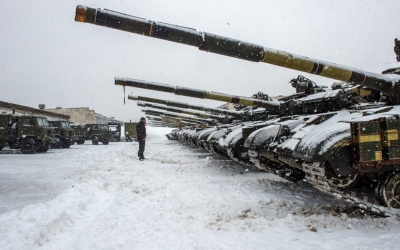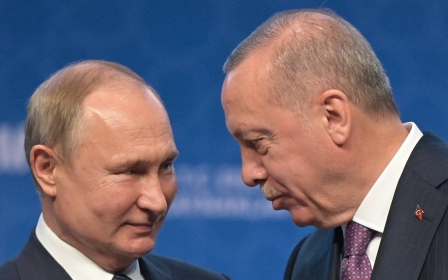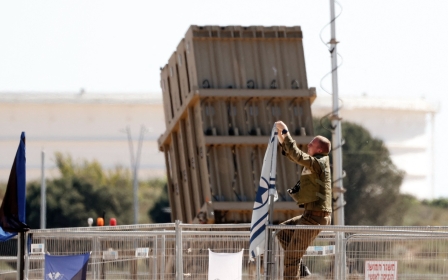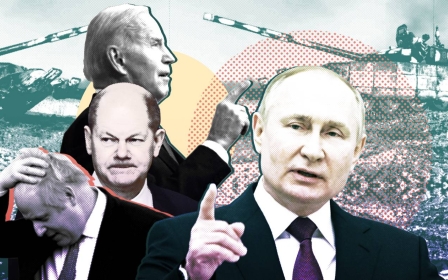Ukraine crisis: Israeli officials say they will side with US over Russia
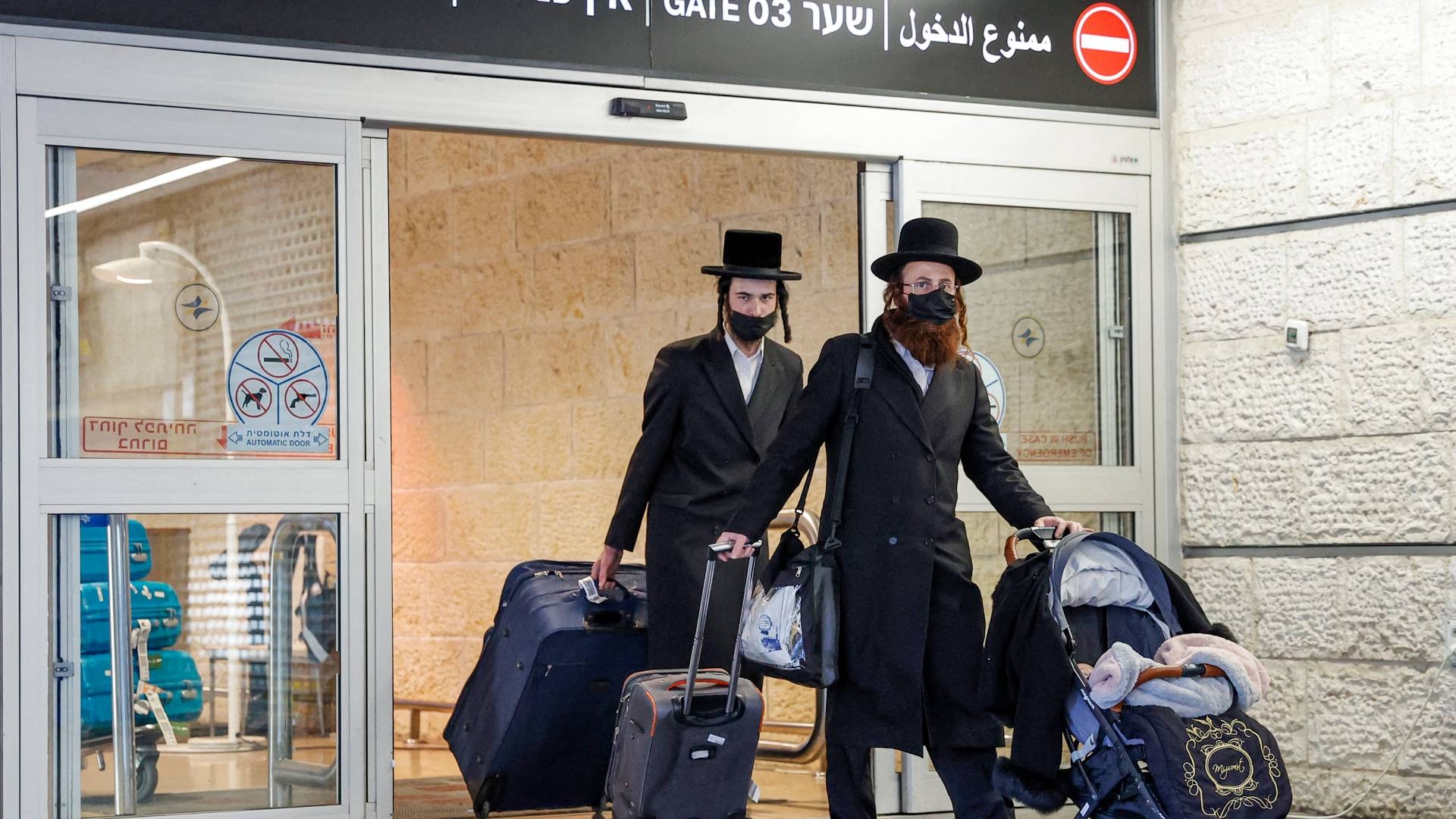
Israel will back the United States in the event that the crisis in Ukraine creates a diplomatic and economic clash between Washington and Moscow, several Israeli officials have said.
Knesset foreign affairs and defence committee chairman Ram Ben-Barak told the 103 FM radio station that if the US were to place sanctions on Russia, it would put Israel in a "difficult situation".
However, ultimately, "if we ever have to choose a side, we will choose the US side", he added, as quoted by Haaretz.
Israeli Transportation Minister Merav Michaeli also told 103 FM on Monday that "there is no question that the special relationship that Israel has with the United States, that this government is working to rehabilitate and rebuild, is not the same relationship that Israel has with Russia".
"Our heart is in the direction of the United States," Diaspora Affairs Minister Nachman Shai told Channel 12, adding that Israel was working hard not to "take a clear public position, with the great hope that this crisis will end without fire, without casualties and without a military confrontation".
The US has threatened sanctions on Russia if it invades Ukraine, as Moscow has amassed roughly 100,000 troops near its border with the eastern European country.
The conflict could put Israel in a difficult situation, as the country is a close ally of the US while also traditionally having good relations with both Russia and Ukraine.
In 2019, Israel and Ukraine signed a major trade agreement, and in December 2021, Ukrainian Defence Minister Oleksiy Reznikov visited Israel.
An armed conflict could also have repercussions for Israel's domestic politics, with the country being home to over 500,000 Ukrainian ex-pats and over 400,000 Russian immigrants.
Nuance and caution
Israeli Foreign Minister Yair Lapid offered a more nuanced response to the tensions surrounding Ukraine, saying that Israel needs to be cautious in its approach.
"Traditionally, of course, we go with the Americans," Lapid told Israel's Channel 12 on Sunday, but noted that there are also large Jewish communities in Russia and Ukraine. He added that "our border with Syria is, for all intents and purposes, a border with Russia."
For over six years, Israel has coordinated its air force activity over Syria with Russia, allowing Israel to target Iranian forces stationed in Syria while Moscow controls the airspace.
In an interview with The Jerusalem Post, Lapid said he has to be “more careful than any other foreign minister in the world”.
'Traditionally, of course, we go with the Americans'
- Yair Lapid, Israeli foreign minister
“I think there is an understanding of this,” he said. “This is where the special relationship [with the US] comes into play. They understand this because they understand us. We have a mutual vocabulary, a language that we share.”
On Monday, Israel moved its embassy in Ukraine from Kyiv to Lviv, and Israeli Prime Minister Naftali Bennett last week called on the 10,000-15,000 Israeli citizens in the country to "come home" while they still can, according to the Times of Israel.
However, Ukraine has expressed disappointment that Israel has not stepped up its support. Last Thursday, Kyiv's foreign ministry summoned Israel's ambassador to the country and demanded an explanation that Israel was requesting Russia's help in evacuating its citizens from Ukraine.
Israel has also refused to provide Ukraine with batteries for its Iron Dome's short-range missile interceptor, according to Israeli news website Ynet.
Still, the statements by Israeli officials, other than Lapid's, have appeared to show cracks in Israel’s wall of neutrality and were noticed in Kyiv, a senior Ukrainian diplomatic source told Haaretz.
The source told the Israeli newspaper that Israel is "getting some pressure from the US at the moment" over the issue.
Middle East Eye propose une couverture et une analyse indépendantes et incomparables du Moyen-Orient, de l’Afrique du Nord et d’autres régions du monde. Pour en savoir plus sur la reprise de ce contenu et les frais qui s’appliquent, veuillez remplir ce formulaire [en anglais]. Pour en savoir plus sur MEE, cliquez ici [en anglais].


